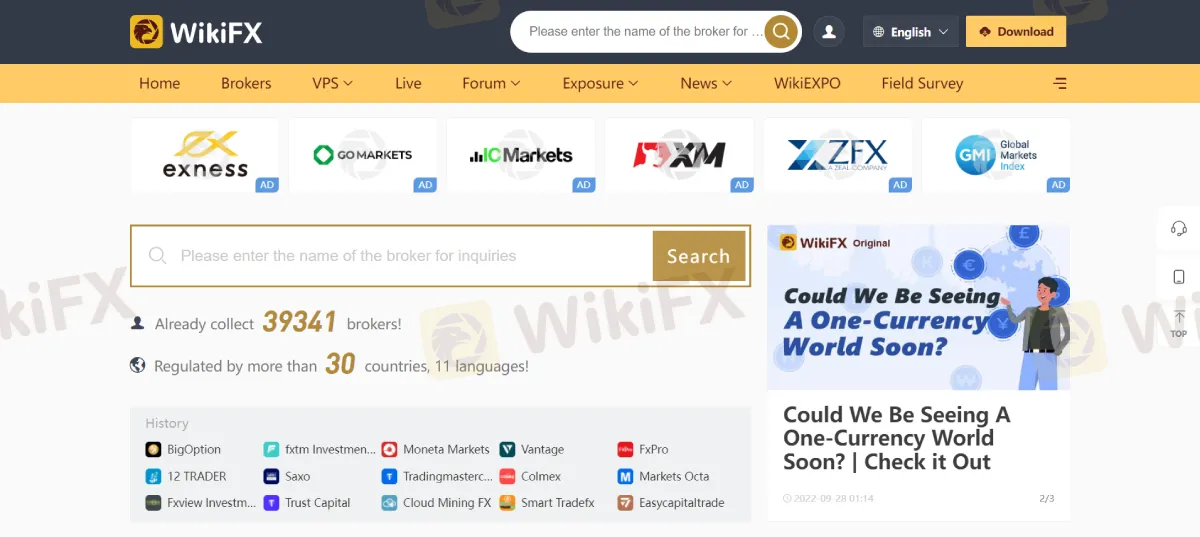简体中文
繁體中文
English
Pусский
日本語
ภาษาไทย
Tiếng Việt
Bahasa Indonesia
Español
हिन्दी
Filippiiniläinen
Français
Deutsch
Português
Türkçe
한국어
العربية
The Pros And Cons Of Scalping In Forex Strategy
Abstract:Scalping in the foreign exchange market involves trading in very short time frames. Fast and potentially exciting trading has its benefits and drawbacks. In this article, we will discuss forex scalping, how to include it in your overall strategy, and how to control your risk while doing so.

Forex scalping is a method of trading currencies on the shortest-period charts. It's a fast and possibly thrilling approach to trade that has advantages but also disadvantages. Continue reading to learn more about forex scalping, how to use it as part of a plan, and how to properly manage your risk.
What exactly is Forex scalping?
Scalping forex is making a high number of fast currency transactions in a short period of time in order to amass a series of modest gains.

While a position trade may last many months or even a year, and a swing trade may last a few days to a few weeks, a scalp trade lasts just minutes, if not seconds. This implies that scalp traders must always be completely focused on the chart and be able to respond to price swings in real-time. If a scalp trader does not concentrate in this manner, he or she may overlook potentially lucrative setups.
Scalping As A Forex Trading Strategy: An Overview
Forex scalping is the practice of purchasing and selling foreign currencies in order to benefit from changes in exchange rates. The international currency market is the world's biggest, with over $6.5 trillion traded across currencies on a daily basis. Traders and investors may take short-term positions in currencies and then record an offsetting deal. The difference between the original trade's exchange rate and the exit trade's exchange rate results in a gain or loss.
For example, if a US trader began a buy position in euros at the euro-to-US-dollar exchange rate of $1.1050 and subsequently sold the position at the rate of $1.1150, the profit would be 0.0100 or 100 pips or around 1%.
A forex scalping trading strategy may have a profit objective of as little as 10 or 20 pips. To maximize earnings, the scalper would start many transactions or increase the position size of each trade.

Scalping has become a feasible method for retail forex traders as a consequence of the low barriers to entry into the world of forex trading. Scalping is popular among newbies since it needs less market expertise and established trading ideas.
Because the forex market is vast and liquid, traders may readily enter and exit trading positions.
Scalping is an excellent option for people who dislike waiting for a deal to finish. Positions are often kept for a relatively short term, which reduces the likelihood of reversals that might impair a trading position.

It is vital to remember that the forex scalper often demands a greater deposit that can manage the level of leverage required by the investor to make the short and tiny transactions viable. Leverage is a kind of margin in which the trader borrows from the broker to increase the size of the position. Leverage, on the other hand, may compound both earnings and losses.
Profits are reduced on each deal, making it difficult to meet a trader's financial objectives. A “5-pip” deal yield may be inadequate for many traders.
Because of the modest amount of profit in each transaction, a single trading loss might wipe out the profits from numerous successful deals. Good transactions might have a risk-reward ratio of one to one or less.
Currency market volatility or extreme fluctuations may boost scalping gains and profits while also exacerbating losses. Forex scalping may be dangerous and result in the loss of a trader's brokerage account. For example, a trader may not have an exit plan or a stop-loss transaction that automatically unwinds the deal. If the transaction swings against the forex trader, he or she may suffer frequent and severe losses. As a consequence, newbies to forex trading should learn about forex scalping before making their first transaction.
About WikiFX
WikiFX is a platform for searching worldwide corporate financial information. Its primary duty is to give the included foreign exchange trading organizations basic information searching, regulatory license seeking, credit assessment, platform identification, and other services.

Over 39,000 brokers, both licensed and unregistered, are listed on the network. WikiFX's staff has been hard at work with 30 financial authorities from across the world to verify that the information supplied is factual and correct.
Stay tuned for more Educational Forex News.
Download the WikiFX App from the App Store or Google Play Store.

Disclaimer:
The views in this article only represent the author's personal views, and do not constitute investment advice on this platform. This platform does not guarantee the accuracy, completeness and timeliness of the information in the article, and will not be liable for any loss caused by the use of or reliance on the information in the article.
Read more

The Daily Habits of a Profitable Trader
Every professional trader follows a structured approach to ensure they are well-prepared, disciplined, and able to seize opportunities with confidence. Whether you are a seasoned investor or an aspiring trader, adhering to a robust daily checklist can significantly enhance your performance. Use this checklist to check if you are a qualified trader

The Impact of Interest Rate Decisions on the Forex Market
Interest rate changes determine currency attractiveness, influencing capital flows and exchange rate trends. Understanding this mechanism helps investors navigate the forex market effectively.

How a Housewife Lost RM288,235 in a Facebook Investment Scam
A 47-year-old housewife in Malaysia recently fell victim to an online investment scam, losing a substantial sum of RM288,235 after engaging with a fraudulent scheme advertised on Facebook.

A Trader’s Worst Mistake: Overlooking Broker Reviews Could Cost You Everything
In today’s digital age, reviews influence nearly every decision we make. When purchasing a smartphone, television, or home appliance, we pore over customer feedback and expert opinions to ensure we’re making the right choice. So why is it that, when it comes to choosing an online broker where real money and financial security are at stake many traders neglect the crucial step of reading reviews?
WikiFX Broker
Latest News
The Withdrawal Trap: How Scam Brokers Lure Victims into Paying More
FCA to Investors: Think Twice Before Trusting These Brokers
Trump\s tariffs: How could they affect the UK and your money
Trump gambles it all on global tariffs he\s wanted for decades
TradingView Brings Live Market Charts to Telegram Users with New Mini App
Trump tariffs: How will India navigate a world on the brink of a trade war?
Interactive Brokers Launches Forecast Contracts in Canada for Market Predictions
Authorities Alert: MAS Impersonation Scam Hits Singapore
Stocks fall again as Trump tariff jitters continue
IG Group Acquires Freetrade for £160M to Expand UK Investment Market
Currency Calculator







